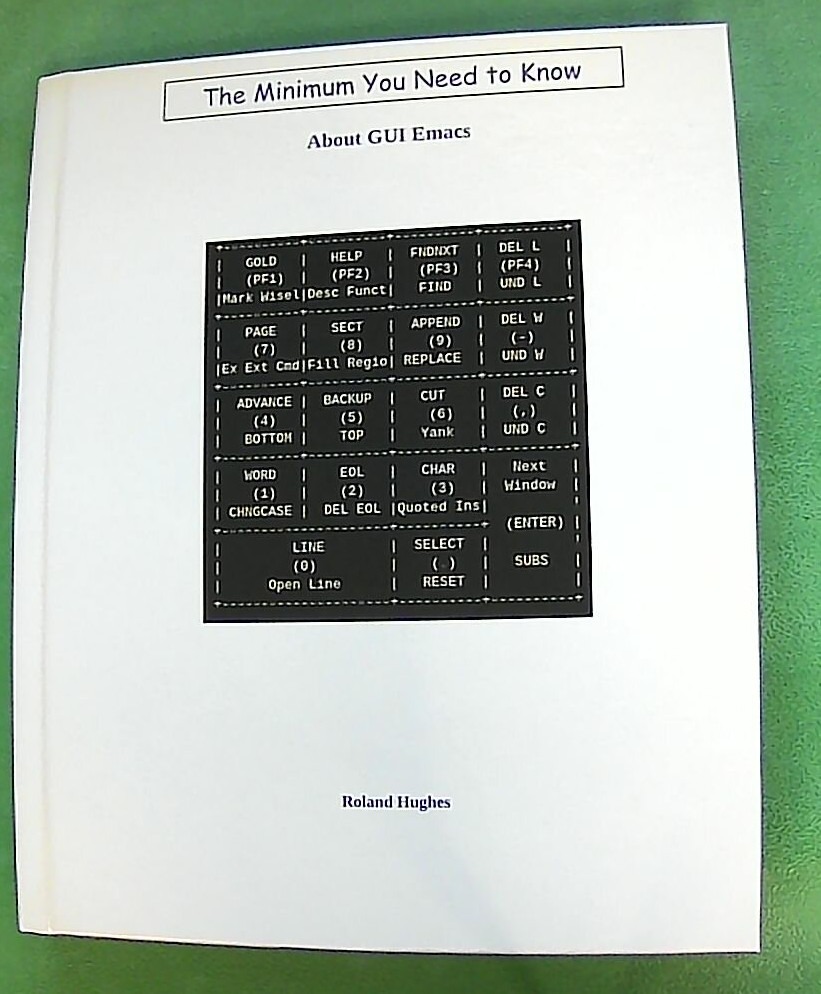Yes, I’ve finally written an Emacs book. I spent the first two decades of my career on DEC platforms using EDT and have always been offended by PC editors forcing me to use mice or memorize draconian keystroke combinations. Off and on I used Emacs over the years. Once I found it had an EDT emulation mode I used it a lot more.
What has offended me, both morally and professionally is the relentless stream of Emacs books from supposed experts. They champion the idea of memorizing five million incomprehensible keystroke combinations just to do ordinary editing. The other camp of authors provides a disk. None of the stuff is maintained by the Emacs community and the entire book focuses on teaching you the scripts only found on the disk for that book. These “professionals” (and I use that term loosely) don’t have enough experience to realize those scripts will eventually break as Emacs and the operating systems it runs on evolves.
The Minimum You Need to Know
Most of you already know that I am the author of an award winning The Minimum You Need to Know technical book series. You know the books result from me actually using various languages and tools. They are written in a mentoring format and really serve as off-line storage for my brain. You never want to have to learn something twice. Just be away from something for a few months and you start to forget. By writing the books I don’t have to remember everything, just which book I wrote it in.
This book is written in that same style. Regrettably I didn’t include a Ruminations section at the end.
Scope of the Emacs Book
Unlike the ocean of other Emacs books out there, I walk you through obtaining and installing Emacs for both Windows and Linux. On Windows there are many ways to install Emacs and I cover most of them. They all have pluses and minuses.
Most Linux users will opt to install “whatever version is in the repo.” They really shouldn’t. That version is generally years out of date.
Yes, there is a bit of a discussion about COBOL in the book because this is fallout from the search for a decent COBOL editor. Unlike most PC based editors, Emacs appears to get tabs correct. More importantly, the journey of adding COBOL support is the same journey you will make enabling any other language that is not supported by default. A great many languages have support in Elpa or Melpa and the process of installing is basically the same.
Long Life
The small amount of code that is in this book is hosted on SourceForge. A community can choose to maintain it long after I’m dead. Most importantly I install stuff from Elpa/Melpa that is maintained by the Emacs community. Unlike the vast majority of Emacs books, this one won’t be useless six months after it was published.
My Emacs book is available for sale at Barnes & Noble.

